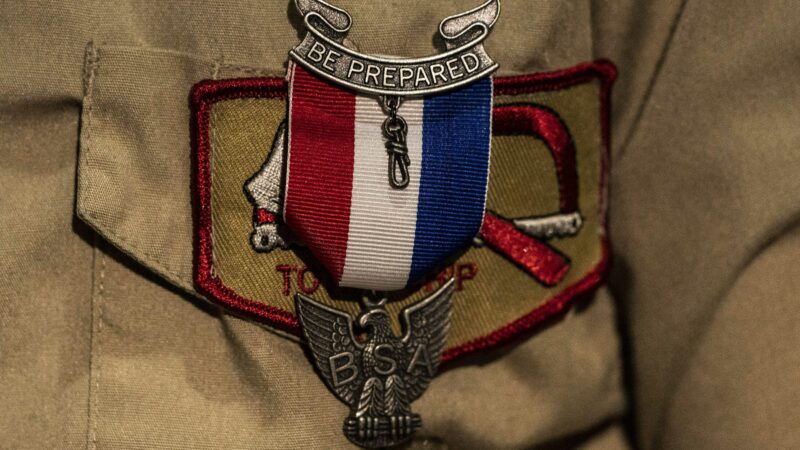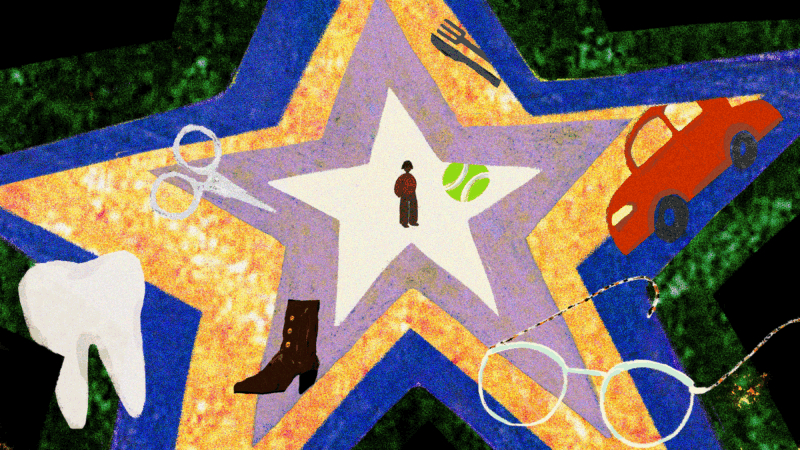Civics 101
It was the students’ chance to toss back some ideas and opinions to Davis, who along with Attorneys Maibeth Porter and Thomas Wells, facilitated the American Bar Association’s Dialogue on Freedom series. It’s the first time the forum’s played out in Alabama. Wells says the dialogue reminds him of those old civics and current events classes from high school days past.
“The whole idea of this is not to shape opinion, it’s to get people, particularly high school students, thinking.”
Dialogue on Freedom was designed by Supreme Court Justice Anthony Kennedy after the September 11 terrorist attacks to offer students a chance to talk about the responsibilities they have or will have as adults.
To help fire up the discussion, there’s a hypothetical scenario presented: an impoverished country, a corrupt government and a charismatic, very popular leader who preaches religion, yet proclaims hate toward the United States. It’s not hard to guess the political and socio-economic parallels of this land of make believe: Afghanistan, Osama bin Laden and the issue of terrorism or Iraq and whether it is cooperating with weapons inspectors.
They are issues that 17-year old Andrelea Kosner is increasingly becoming interested in. She admits to not saying much during the hypothetical discussion, but is increasingly aware of her real power at the ballot box.
“And now I’m taking voting very seriously. I want my opinion, like, for me to be able to tell what I think about a situation and that sort of stuff.”
While Andrelea and all the students agreed that the United States is the leading country in the world, there were some differing opinions about the responsibilities that leadership should or should NOT entail.
During the forum, one student had this comment:
“I most definitely think that the United States is like this amazingly massive country. We have all this power, but I really don’t think that gives us any right to go and tell a country that’s not any of our business how they should run their government. That doesn’t give us the right because, although, we’re a strong country, we’re not the Earth police.
But Seth Garvin disagrees.
“We turned our back when Hitler was slaughtering innocent Jews and we really didn’t get the full effect until we went over there and fought.”
The 18-year old senior compares Saddam Hussein’s Iraqi regime to that of the Third Reich before World War II.
“I think history could be repeating itself. But I also think that we can learn from the past also, and not have this happen again. And go in there and take away weapons from a very sinister dictator.”
Even if that means war, he says. A war in which some fellow students might fight. Matthew Yarborough just joined the Army. He says that’s his way of participating in the process.
“I mean, that’s putting my life on the line for my country. This does directly affect us if Saddam does have weapons of mass destruction, then we need to go ahead and take care of it before it affects us in a negative way.”
Congressman Artur Davis says it came as no surprise to him that the students were so engaged in the forum. He says he’d like to see more of that kind of involvement from the students, and from his peers.
“I think our political leaders ought to spend more time talking to our young people and spend more time in the community having community forums.”
Feds announce $4.1 billion loan for electric power expansion in Alabama
Federal energy officials said the loan will save customers money as the companies undertake a huge expansion driven by demand from computer data centers.
Mortgage rates fall below 6% for the first time in years
The average home loan rate has dropped below 6% for the first time since 2022. Will that help thaw the frozen housing market?
Pentagon shifts toward maintaining ties to Scouting
Months after NPR reported on the Pentagon's efforts to sever ties with Scouting America, efforts to maintain the partnership have new momentum
Why farmers in California are backing a giant solar farm
Many farmers have had to fallow land as a state law comes into effect limiting their access to water. There's now a push to develop some of that land… into solar farms.
Every business wants your review. What’s with the feedback frenzy?
Customers want to read reviews and businesses need reviews to attract customers. But the constant demand for reviews could be creating a feedback backlash, experts say.
Can’t get a prescription renewed? Here’s how to cope with prior authorizations
These health care hurdles can stand in the way of getting treatment your doctor says you need. Here's what to know about how to deal with them.







